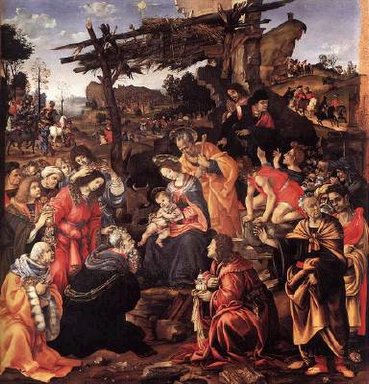
by Ed Pacht
Three Kings,
wise men,
students of the stars,
and of old and sacred books,
who left no thrones behind,
yet here they are, see them come:
three kings who are not kings
come from far to see the King
Three kings,
wise men,
students of the stars.
and of old and sacred books,
but are there only three?
Could three kinds of gifts
be brought by number more or less?
Could it be that there are four or more?
But this we truly know:
three kings who were not kings,
and may have not been three,
came from far to see the King.
Three kings,
wise men,
students of the stars.
and of old and sacred books,
who knelt beside the manger bed,
in the stable where they did not go,
but no, 'twas in a house they found the child,
and in a house bowed down,
and in a house gave gifts,
three kings who were not kings,
and may have not been three,
come from far to see the King.
Three kings,
Twelfth Day,
or the next year,
or the next;
three kings who were not kings,
and may have not been three,
on a day unknown
to a place unknown,
came from far to see the King.
Three kings, or not,
wise men who followed a star,
and came to a land they did not own,
strangers in a land of promise,
strangers, foreign, gentiles they.
three kings who were not kings,
and may not have been three,
came from far to see the King,
and so have we.

1 comment:
Thanks, Ed.
An example of how the reading of nature can draw us to God. I suppose that many academics will be thrilled if their research had led them to find a special little baby in a manger, just as their theories predicted.
However, these days academics are more intent on proving that observation is all that counts as viable material on which to build their theories of life.
Post a Comment